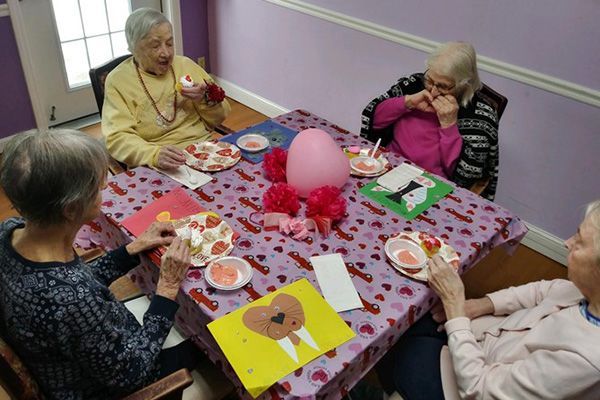Communicating with a Person with Alzheimer’s or other Dementia
The other day as I was walking through our Memory Care Lane, the memory care wing at our Assisted Living Community in Leominster, MA, I was able to observe the quality care and compassion one of our CNAs was providing one of the seniors living with us. The Resident, whom I will call Nancy (not her real name due to HIPPA) was being attended to by one of our long-tenured aides (whom will refer to as Lisa) who had specialized training in Alzheimer’s Care. Lisa’s approach to Nancy demonstrated several key practices in communicating with a senior citizen with Alzheimer’s or Dementia which I thought would be useful to share.
- Lisa had approached Nancy from the front, introducing herself, probably for the thousandth time. As Nancy was seated, Lisa got down on her level maintaining eye contact the entire time. Lisa placed a hand on Nancy’s forearm to give her physical comfort. Keep in mind that if the senior is irritated by touch, to avoid this, but be sure to practice the other approach keys – approach from the front, introduce yourself by name, be on the same level and maintain eye contact.
- Lisa called Nancy by name to help orient her and to gain her attention and focus. Lisa used a lower pitch as it is more calming. She spoke slowly asking Nancy one question at a time in short sentences with simple words so as not to overwhelm Nancy.
- When Nancy didn’t respond immediately, she patiently waited as Alzheimer suffers often need more time to process. When Nancy didn’t respond, Lisa repeated the question using the same words rather than changing words which can lead to more confusion and agitation.
- Rather than asking Lisa questions, she turned the question into an answer, providing a solution. As it was close to lunch time, rather than saying “Are you hungry?”, Lisa said “The Dining Room is around the corner. Let me take you there.”
- To get Nancy ready for the walk to the Dining Room, Lisa placed Nancy’s hand on her walker, providing a visual cue on what Lisa would like her to do. Nancy understood this cue and stood up, allowing Lisa to escort her to her meal.
- During this entire encounter, Lisa avoided quizzing her, peppering her with questions or asking her questions such as, “Do you remember what you wanted?”. Asking a person with dementia to remember only adds to their frustration. Throughout Lisa presented an easygoing manner with a gentle, kind tone of voice supported by friendly facial expressions. Most importantly, Lisa treated Nancy with dignity and respect.
I was so proud of Lisa that I gave her a Manor Moment, a program of recognition for these numerous special moments at Manor on the Hill.
Please look for more useful information each week. Thanks for reading.



